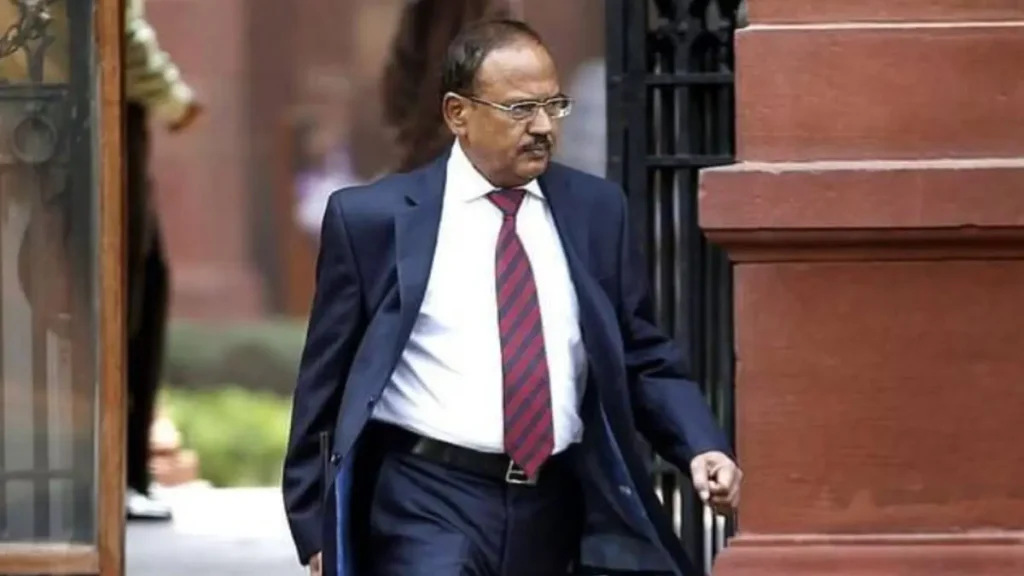
Introduction
Ajit Doval, one of India’s most prominent intelligence officers, retired as the Director of the Intelligence Bureau (IB) in 2005. However, his retirement did not mark the end of his contributions to India’s national security. From 2005 to 2014, he remained actively engaged in security policy, counterterrorism strategies, and political advisory roles, ultimately leading to his appointment as India’s National Security Advisor (NSA) in 2014.
Key Activities (2005–2014)
Even after retirement, Ajit Doval played a crucial role in shaping India’s security and geopolitical strategies through various platforms. His influence was particularly notable in think tank leadership, counterterrorism advocacy, and his close association with BJP’s security policies before the 2014 elections.
1. Think Tank Leadership
After stepping down as IB Director, Doval took a key leadership role in strategic policy research:
- Became the founding Director of the Vivekananda International Foundation (VIF), a think tank focused on national security, governance, and foreign policy.
- Under his leadership, VIF became a key policy research institution, providing insights on counterterrorism, China’s military strategy, and India’s defense policies.
- Engaged with top policymakers, military officials, and intelligence experts to craft strategic recommendations for India’s security apparatus.
2. National Security Advocacy
Doval remained a key voice in India’s security discourse, regularly offering strategic insights on geopolitical issues:
- Spoke on India’s external security challenges, including:
- The rise of China and its expansionist policies.
- Pakistan’s involvement in terrorism and cross-border militancy.
- The importance of strengthening India’s counterinsurgency operations.
- Advised Indian policymakers on the importance of intelligence-driven security frameworks.
- Advocated for a stronger and more proactive national security doctrine, later influencing his policies as NSA after 2014.
3. Counterterrorism and Strategic Policy Work
As a former intelligence officer, Doval remained deeply involved in counterterrorism policy and border security strategies:
- Advised on counterterrorism measures, including the use of offensive defense tactics against militant groups.
- Promoted the concept of “Defensive Offense,” advocating for preemptive measures against terror threats.
- Stressed the need for modernization in India’s intelligence operations, particularly in dealing with cybersecurity and emerging threats.
4. Influence in Political Circles (2012–2014)
As Narendra Modi emerged as the BJP’s Prime Ministerial candidate in 2014, Doval played a key advisory role:
- Became a top security advisor to the BJP, influencing its national security vision.
- Helped shape Modi’s security and foreign policy approach, emphasizing:
- Strengthening defense preparedness.
- Tougher stance on terrorism and Pakistan’s cross-border activities.
- Enhanced intelligence coordination between security agencies.
- His strategic insights became a foundation for the BJP’s national security framework.
5. Transition to NSA (2014)
Following the 2014 Lok Sabha elections, Narendra Modi became India’s Prime Minister, and Ajit Doval was appointed as National Security Advisor (NSA) on May 30, 2014:
- His appointment marked his official return to government service.
- He became India’s most influential security strategist, leading major decisions on:
- Counterterrorism operations (e.g., 2016 Surgical Strikes).
- India’s border security policy.
- Geopolitical negotiations with China and Pakistan.
Conclusion
Ajit Doval’s post-retirement career (2005–2014) was instrumental in shaping India’s modern security landscape. Through his work at the Vivekananda International Foundation, counterterrorism advocacy, and strategic advisory roles, he played a pivotal role in national security policymaking. His expertise and strategic vision ultimately led to his appointment as India’s National Security Advisor (NSA) in 2014, where he continues to influence India’s defense and security policies.
Reference Websites
- The Hindu – www.thehindu.com
- Times of India – www.timesofindia.indiatimes.com
- NDTV – www.ndtv.com
- Economic Times – www.economictimes.indiatimes.com
- Hindustan Times – www.hindustantimes.com